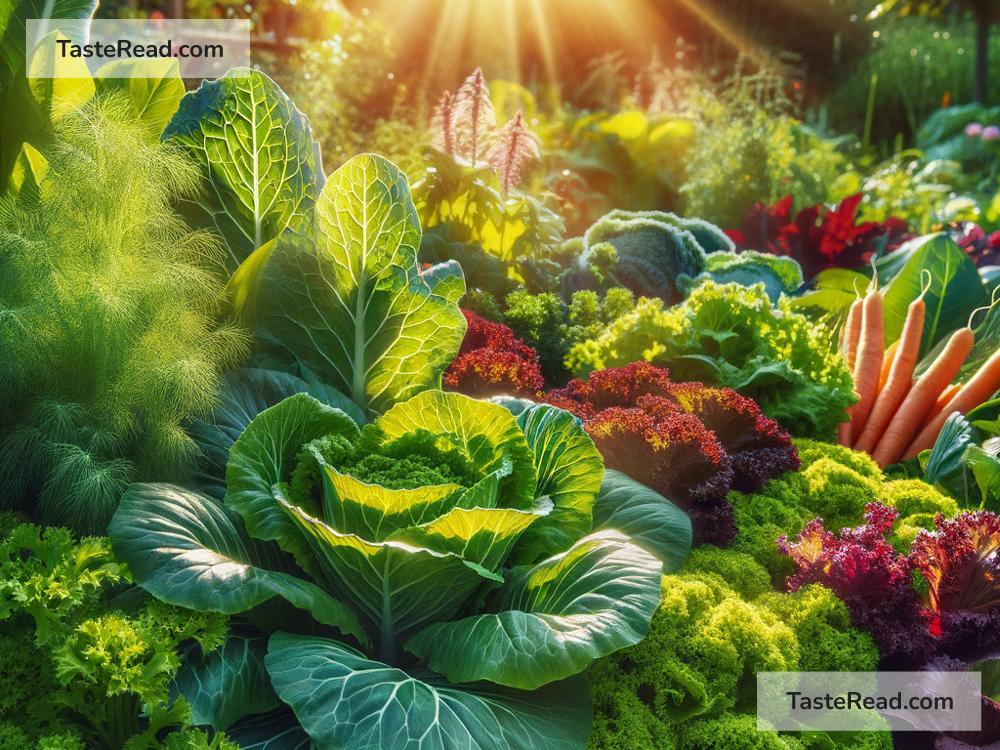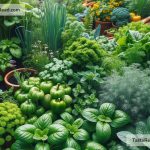Exploring the Role of Perennial Vegetables in Creating Sustainable Diets
In the quest for more sustainable lifestyles, our diets play a crucial role. As we aim to minimize our environmental footprint, the types of foods we consume, and how they are produced come under scrutiny. This is where perennial vegetables become a game-changer in fostering sustainable diets. But what exactly are perennial vegetables, and how do they contribute to ecological and nutritional well-being? Let’s dive in and explore.
What are Perennial Vegetables?
Perennial vegetables are plants that, once sown, will keep growing and producing food for several years, even decades, without the need to replant them every season. Unlike annual veggies, such as tomatoes and lettuce, which only live for a single growing season, perennials are the gifts that keep on giving. Some commonly known perennials include asparagus, rhubarb, and artichokes, but there are many more out there, some of which might already be growing in your backyard!
Environmental Benefits
One of the most compelling reasons to incorporate perennial vegetables into our diets is their environmental advantage. Here’s why they’re an eco-friendly choice:
-
Reduced Soil Erosion: Perennials have deep root systems that help hold the soil in place, combating erosion effectively. This is vital for maintaining healthy land that can continue to produce food year after year.
-
Lower Water Needs: Because of their deep roots, perennial plants are better at accessing water stored in the soil compared to their annual counterparts. This means they often require less watering, conserving a vital resource.
-
Fewer Chemical Inputs: Perennial vegetables don’t need to be replanted every year, which means less disturbance to the soil and a reduced need for fertilizers and pesticides. This not only makes them more natural but also less harmful to the surrounding environment.
Nutritional and Health Benefits
Perennial vegetables are not just good for the planet; they’re excellent for our health too. Many of these plants are nutritional powerhouses, packed with vitamins, minerals, and fiber. Because they are often less common in the supermarket, incorporating them into your diet can provide diversity in nutrients and flavors, enriching your culinary experience while boosting your health.
Economic and Community Perks
Growing perennial vegetables can also have economic benefits. With perennials, you invest once in plants that will provide food for many years, saving money in the long run. Additionally, these plants often require less work than annuals, freeing up time for other activities.
On a community level, sharing and exchanging perennial vegetables can strengthen bonds among neighbors. As these plants often produce an abundance of food, there’s plenty to go around, promoting a culture of sharing and generosity.
How to Get Started with Perennial Vegetables
Starting with perennial vegetables is easier than you might think. Here’s how you can begin:
-
Research: Find out which perennial vegetables are suitable for your climate and soil type. There’s a surprising variety out there, and some might be more adapted to your local conditions than others.
-
Start Small: Choose two or three varieties to start with. This will make it easier to learn about their specific needs without becoming overwhelmed.
-
Prepare Your Soil: Give your perennials the best start by preparing your soil correctly. This might involve incorporating compost or other organic matter to enrich the soil.
-
Care and Maintenance: Although perennials require less maintenance than annuals, they’ll still need some care. Make sure they’re watered during extremely dry periods and protect them from pests if necessary.
-
Harvest and Enjoy: Once your perennials are established, you can start enjoying the fruits (or vegetables) of your labor. Experiment with different ways to prepare and enjoy them!
The Path Towards Sustainable Diets
Incorporating perennial vegetables into our diets is a step towards more sustainable eating habits. By choosing plants that are good for the environment, our health, and our wallets, we can make a positive impact on the planet. It’s about creating a food system that works with nature, rather than against it.
Whether you’re a seasoned gardener or a newcomer looking to make a difference, perennial vegetables offer a rewarding and sustainable way to enhance your diet. So, why not give them a try? The planet — and your tastebuds — will thank you.


